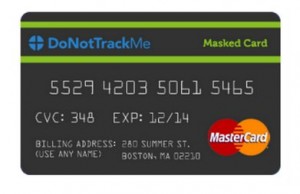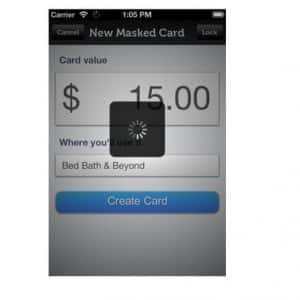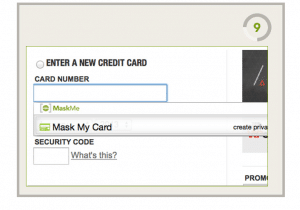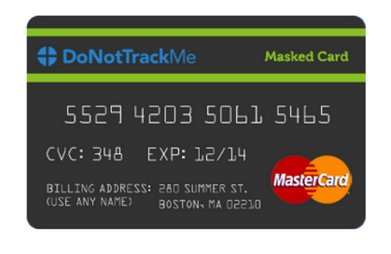HAYLEY PETERSON
Consumers who are feeling timid about using their credit cards following the massive data breaches at Target and Neiman Marcus might find solace in a new security system that uses randomly generated credit card numbers to fend off potential hackers.
The service, called MaskMe, was developed by the Boston-based privacy firm Abine, which is behind the popular blocking software DoNotTrackMe.
Here’s how it works: When you’re ready to make a purchase, MaskMe will randomly generate a masked card — a one-time-use credit card number, expiration date and security code with a name of your choosing. The card is produced virtually and looks like this:

If you are in a physical store, you can give the card information to the retailer to pay for your purchase. The card is only authorized for the amount you specify and after a single use, it will be destroyed.
Here’s a screenshot of the mobile app in the process of creating a card, courtesy of Abine:

If you are shopping online, the masked card will show up as a credit card option when you’re checking out. Once you select it, the service will automatically enter all the information you need. Abine inputs its own mailing address as the billing address for all masked cards.

“Masked cards are useful because they leave no trace of your real credit card on all those databases where you shop,” says Abine co-founder and CEO Rob Shavell. “The principal behind what we do for security is very simple: Hackers can’t steal what they don’t have.”
Some banks, including Bank of America and Discover, offer a similar one-time-use-only card for online purchases. But unlike MaskMe, those cards use consumers’ real names and addresses.
Shavell says its important to protect that information, as well.
“The average online store today works with over seven different targeted advertising, tracking, and data collection companies,” he said. “These purchases that you make with masked cards can no longer be connected back to a single card and fed into a profile of what you buy online — which can be sold without you even knowing it to insurers, banks, the government, you name it.”
Some consumers may have concerns about trusting Abine with their credit card info, however. What if Abine was hacked?
To protect against that possibility, Abine doesn’t store consumers’ real credit card info, Shavell says. That data is encrypted and stored by the company’s banking partner.
“The real point, though, is that consumers shouldn’t trust us more than any other merchant,” he said. “The advantage is that the more [that consumers] shop with masked cards, the less places their real card is.”
Via Business Insider

